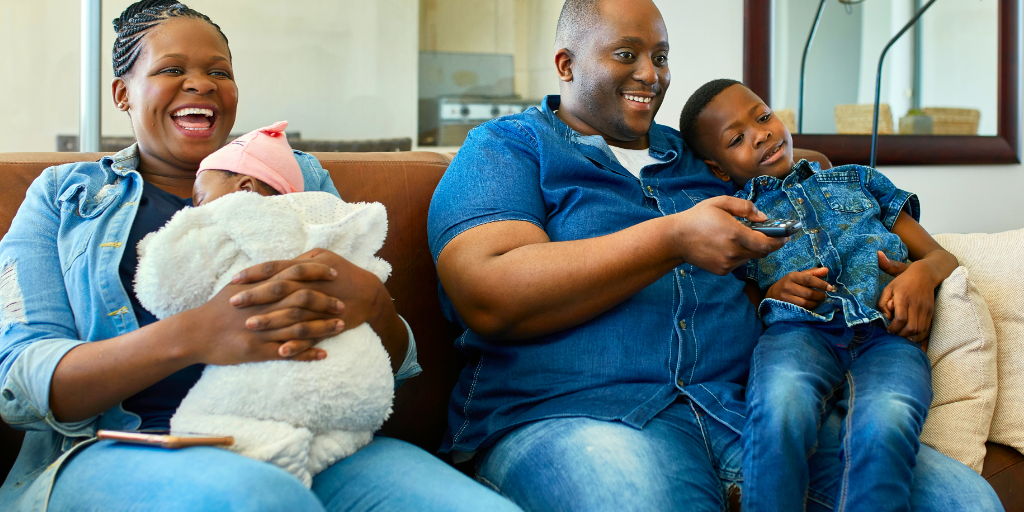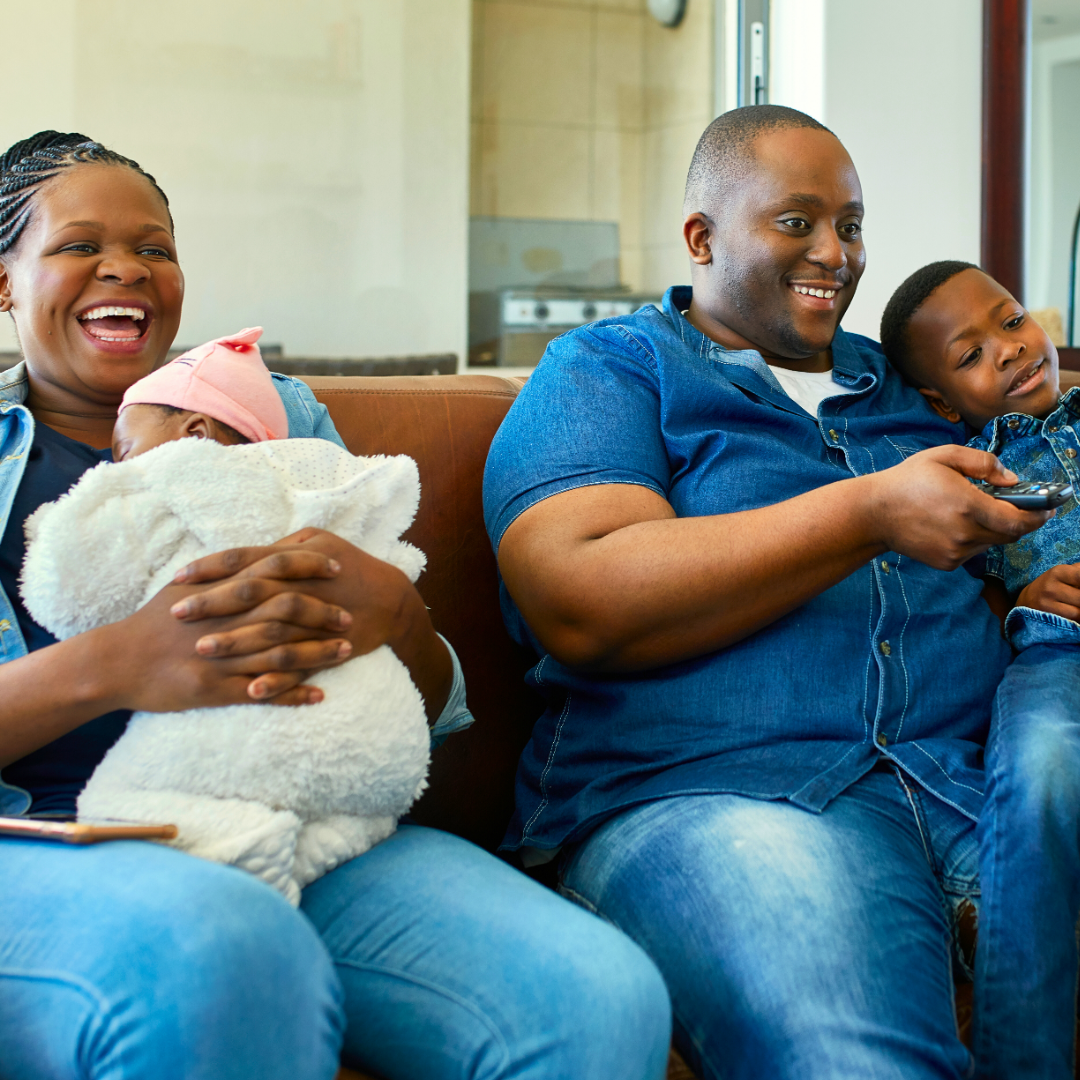
Kate Taliaferro shares a spiritual lesson she learned from watching a children's video with her kids.
Depending on how old the children in your life are, you may not have heard of the sensational kids show, Bluey. It is an Australian show that Disney has picked up and it is, in a word, phenomenal.
Bluey is approximately 6 years old and is, coincidentally, a blue dog. She has a little sister named Bingo, age 4, and parents, mom Chile and dad Bandit. The foursome make up the core cast of the shows which run only 7-10 minutes.
I love this show for many reasons. The music is great, the messages of each episode are excellent, and the show is intentional about speaking to both its young and adult audience.

Take the episode “Duck Cake” for example. It’s Bingo's birthday and she gets to pick out her cake. She chose, obviously, a duck shaped cake. In a brilliant move by the creators, it’s Dad who gets the privilege of trying to construct a duck out of cake while Mom takes Bingo to hockey practice. Bluey stays home and is asked to clean up the huge Lego bonanza she and Bingo have created in the entryway to the house. But only her half, let's keep that clear.
Bluey, as most any child, doesn't exactly throw herself into her task. She wants to help make the cake. Dad tells her she can't just help with the fun stuff, she has to also do what she was told. Bluey, unsurprisingly, begins bartering with him. First stickers, then money, then being able to lick the beater. She does, eventually get her side of the mess all cleaned up. While she is just starting to lick the beater, Dad is attempting to position the head on the duck cake. It falls to the side and splats on the floor.
He sinks to the floor in defeat, taking a few minutes to sit in sorrow. Bluey looks from her beater to the mess, and quietly hops off her stool to clean up the mess. After, she offers a suggestion to Dad about how to fix it, which he accepts but says he has to clean the floor first. He is shocked to find it already clean. He makes intentional, genuine eye contact with Bluey and says, "Thank you."
Bluey's tail starts to wag. This tail wag is central to the whole story. Bingo knew the Duck Cake was her cake because when she saw it, it made her tail wag. On her way out the door with Mom, she asks how other animals know if they are happy without tails, because when her tail wags it tells her she is happy.
None of Bluey's other "prizes" for cleaning up made her tail wag. She decides to try to make it happen again. She quickly goes and cleans up Bingo's side of the mess. When Bingo and Mom get home and see the room clean, Mom has a similar thank you moment with Bluey. Her tail wags again.

8-minute episode, people, it's amazingly genius! I already loved it. Then, I read this by Chiara Lubich:
In our daily duties there are always burdensome elements which entail some measure of fatigue and discomfort. But these are the very things that we should appreciate as precious gifts that we can offer to God.
Everything that tastes of suffering is, in fact, of utmost importance. The world does not accept suffering, because it is no longer familiar with the value Christian life gives it, and because suffering goes against our human nature. Thus, the world tries to avoid and to ignore it.
Yet, suffering has a mysterious task.
It can become a way to happiness, to that true and enduring happiness which alone can fill our hearts. It is the same happiness that God enjoys and that we humans, destined to what is absolute, can share already in this life.
Precisely through his suffering, Jesus has given joy to every person: joy here on earth and unending joy in the next life. In the same way, by accepting and offering to him our daily worries and concerns, we obtain happiness for ourselves and for others. (Chiara Lubich, "A Mysterious Task," Heaven on Earth, pg. 78)
We don't find happiness in prizes or bribes. We find true happiness when we serve others, when we suffer even a little for someone else. The greatest achievements come from a path of suffering, self-denial, sacrifice. Running a marathon, owning a company, giving birth to a child. The list goes on and on. As Chiara said, the greatest and most perfect joy to enter the world, to change the world, came through the Cross of Christ.

Every day, we have the opportunity to participate in this mysterious task. To suffer and sacrifice on behalf of others which will bring both us and them happiness. Letting someone else go before you in line, listening well to a child's story of their imaginary friend without also scrolling on your phone, tidying up another person's mess, anticipating a need before being asked. That list, too, goes on and on.
We don't have tails which tell us when we are happy or not. But we do have a heart. Our heart warms when we make good choices but especially when we make a good, hard, choice. We have a conscience which, when well-formed, can help to steer us along a path which leads to that true and lasting happiness. It means discipline and often self-denial. It is hard. This is why Jesus talks about how the vine grower (God the Father), "takes away every branch that does not bear fruit, and every one that does he prunes so that it bears more" (John 15:2). God desires the very best for us, and sometimes that means pruning away what is holding us back from bearing more fruit.
The Easter season is in full swing. Do you recall what you fasted from this Lent? Are you allowing that fast to still inform your daily life, even if the actual practice of fasting is over? What about your prayer and almsgiving? These practices aren’t just for Lent. If Lent was a season of preparation, then the Easter season is one of action, of putting those preparations to good use in our everyday lives.
Copyright 2023 Kate Taliaferro
Images: Canva
About the Author

Kate Taliaferro
Kate Taliaferro is an Air Force wife and mom of 6. She has a Masters in Religious Education and tries to find God's presence in all parts of her day, be it cooking, cleaning or just the everyday ordinary. She enjoys homeschooling, stitching crafts and finding cheerios between the couch cushions. She blogs at Daily Graces.


.png?width=1806&height=731&name=CatholicMom_hcfm_logo1_pos_871c_2728c%20(002).png)
Comments